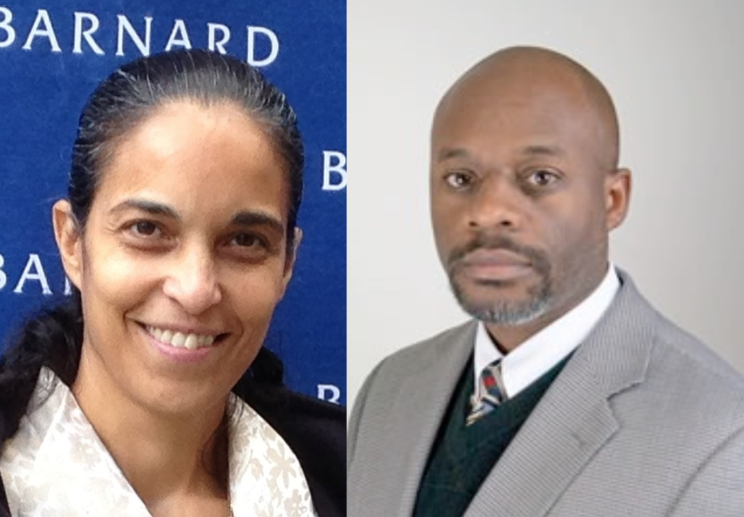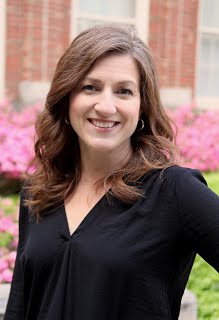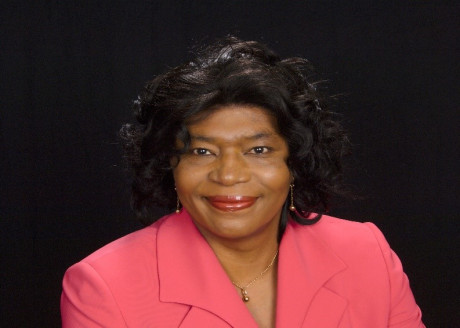Research Committee, Jan 2017

NARST Research Committee
The Research Committee will hold a mini-course during the 2017 NARST Annual International Conference. Participants will be asked to prepare for the session by reading a set of articles that address methodological, ethical, and identity issues related to naming ourselves and others in research publications. Prior to the conference, a link to the readings associated with the mini-course will be available.
Session Organizers
- Maria S. Rivera Maulucci, Barnard College, NY
- Felicia M. Mensah, Teachers College, NY
Facilitators
- Carolyn Parker, Johns Hopkin’s School of Education, MD
- Renee Schwartz, Georgia State University, GA
- Susan Kowalski, Biological Sciences Curriculum Study, CO
- Phillip Boda, Teachers College, NY
Panelists
- Dana Zeidler, Co-Editor of JRST, University of South Florida, FL
- Fouad Abd-El-Khalick, Co-Editor of JRST, University of North Carolina Chapel Hill, NC
- Felicia M. Mensah, Associate Editor of JRST, Teachers College, NY
- Maria S. Rivera Maulucci, Associate Editor of JRST, Barnard College, NY
Background
Among the many concerns of researchers is how we represent ourselves and the individuals or populations who participate in our research projects. In an increasingly global community, the norms for the design, conduct, and reporting of research must transcend the local and be able to speak to a world audience with respect. A review of the literature reveals at least three methodological concerns for the design and conduct of educational research: 1) research design issues related to the use of racial and ethnic categories; 2) ethical issues related to confidentiality, anonymity and use of unbiased language; and 3) issues of identity and intersectionality. First, the use of race as a descriptor of populations and as an independent variable in research has come under severe critique, and researchers must ensure that their use of racial, ethnic, and other categories are appropriate for their studies. Second, researchers must be careful to use unbiased language as they describe the participants involved in their research. The American Psychological Association (APA) provides guidelines for reducing bias in research reports. However, the APA recommendations are not without their critiques, and they constitute a moving target; thus, researchers must remain vigilant regarding changes in naming practices. Furthermore, requirements regarding confidentiality and anonymity may conflict with participants’ desires for full disclosure or proper masking of research participants or sites. Finally, issues of identity and intersectionality require researchers to consider how the pseudonyms and labels used to describe individuals, groups, places, or settings might excavate, accentuate, hide, or silence aspects of identity that may be salient to the research study or contribute to deficit notions or stereotypes. This session will provide a venue to explore and discuss each of these issues and to develop guidelines for NARST members to use in the design, conduct, and reporting of their research.
NARST-Sponsored Sessions at NSTA Conferences

NARST Liaison to NSTA
Each year, through an affiliate agreement with NSTA, NARST has the opportunity for 2 hours of programming at each NSTA area conference and 10 hours of programming at the NSTA national conference. The NARST Research Committee, with the assistance of volunteer reviewers, selects proposals that 1) address themes relevant to teaching and learning science, 2) help bridge the gap between research and practice, and 3) address the needs and concerns of practitioners. We wish to congratulate, and thank, the following NARST members whose work was selected to be shared at the 2016 area NSTA conferences and the 2017 annual NSTA conference.
2016 Area Conference in Minneapolis, Minnesota (October 27-29)
- Making Sense of Student Sense Making in Oral Presentations of Independent Research Projects – Michelle Koomen, Jonathan Andicoechea, Gillian Roehrig, Sarah Weaver, & Narmin Ghalichi
- What Can I Do and How Do I Get There? Trajectories of Science Teacher Learning – Julie Luft, Shannon Dubois, Brooke A. Whitworth, Vanessa Kind, & Mandi Berry
2016 Area Conference in Portland, Oregon (November 10-12)
- Resisting Racist, Classist Neoliberalism in Science Education: Counter-Stories of an African-American Teacher and Her Students – Jean R. Aguilar-Valdez
- The Efficacy of Multi-Level Professional Development for Elementary, Middle School, and High School Teachers – Caren Gough
2016 Area Conference in Columbus, Ohio (December 1-3)
- Imagery Support Strategies for Developing Dynamic Scientific Models with Students – Norman T. Price, & Zach Holmboe
- Using Democratic Science to Engage Families in Scientific Explanation – Michelle A. Fleming, Lisa O. Kenyon, Leonard Kenyon, & Bhaskar Upadhyay
2017 National Conference in Los Angeles, California (March 30-April 2)
- Why Science Teacher Education Needs Disability Studies: A Comprehensive Research Analysis – Phillip A. Boda
- Integrating Science and Language: Engaging Bilingual Middle School Students in Scientific Argumentation and Explanation – Emily J. S. Kang, Lauren H. Swanson, & Clara V. Bauler,
- Strategies for Promoting Student Participation in Science Practices: A Teacher’s Organization of Science Classroom Talk – Deb Morrison
- Examining Issues in Critical Science Education: Does the Practice-Research Gap Still Exist? – Catherine D. Bhathena
- Integrating Science and Engineering Curriculum in Elementary Classrooms – Mandy Biggers, & Leigh A. Haefner
- Peer-Led Team Learning: Improving Achievement for Underrepresented Minorities in Post-Secondary Biology – Julia J. Snyder, Jeremy D. Sloane, & Jason R. Wiles
- Shifting Conceptions: Identifying and Understanding Teachers’ Conceptual Models of Integrated STEM Education– Elizabeth A. Ring, Emily A. Dare, Elizabeth A. Crotty, & Gillian H. Roehrig
- Opportunities to Learn Science: A Case Study of Science Classrooms in Successful-Diverse Texas High Schools – Jennifer K. LeBlanc, Carol L Stuessy, & Kaitlin K. Stone
- Varying Conceptualizations of STEM Education and the Implications for Professional Development – Tamara Holmlund Nelson, Kristin Lesseig, & David Slavit
- Engaging Students with Primary Literature Improves Nature of Science Conceptions and Confidence in Reading Science – B. Elijah Carter & Jason R. Wiles
CADASE RIG: Member’s Accomplishments for 2016

CADASE RIG
CADASE members are working hard and have notable accomplishments to show for it. We wish to publish some of these accomplishments to share and celebrate them with NARST membership.
Neporcha Cone has been appointed Interim Chair of Elementary and Early Childhood Education at Kennesaw State University.
Melody Russel was selected to be a Ball State University SAP Fellow. In this role, she participated in monthly professional development meetings on how to pursue and manage grants in academia. At the end of the fellowship, she was awarded a $500 grant to use for her BSU research and travel for professional development. She also co-facilitated a science camp for under-served African-American youth in grades K-6 at the Scientific Summer Camp for Community Women Against Hardship Community Center, during Summer 2016. For this activity, she created 5E Learning Model lesson plans for Life Science and Physical Science. Melody is Co-PI of a National Science Foundation Research on Learning in Formal and Informal Settings CS10K grant. The project is for The Tuskegee Partnership to Establish Computer Science Education in the Alabama Black Belt. The award amount is $195,000.
Shari Watkins has just successfully defended her doctoral dissertation, titled African American male PhD scientists and engineers: Perceptions of factors that impact their persistence in STEM through a lens of critical race theory, and has graduated from the School of Education at the University of Delaware with a PhD in Science Education.
Stanton Belford has been working hard improving himself professionally. He recently attended several conferences, including a) Council of Independent Colleges, Consortium on Digital Resources for Teaching and Research National Workshop in Washington, DC, where he presented with Richard Madden; b) the Mid-Atlantic Association of Science Teachers Meeting in Gatlinburg, TN, where he presented a poster entitled Incorporating informal science education to determine students’ perception of the marine environment; and c) the Tennessee Academy of Science (TAS) Annual Meeting in Clarksville, TN, where he presented a poster with student Markeyta Bledsoe entitled Distribution of sea urchin density and community structure in different habitats along the northeastern coast of Trinidad.
Natalie King completed her PhD program at the University of Florida (Curriculum and Instruction- Science Education) and is now an assistant professor of science education at Georgia State University.
Leon Walls took part in the Great Lakes Bioenergy Research Center (GLBRC) Research Experience for Teachers program this past summer, in which he studied soil carbon in the lab of UW-Madison professor of agronomy and GLBRC researcher Chris Kucharik. Leon will be incorporating what he learned from his GLBRC experience into a sustainability course for future science educators.
Rona Robinson-Hill has successfully completed her second year of the tenure process at the Department of Biology, Ball State University. She is also Principal Investigator for the Training Future Scientist Program grant.
Irene Osisioma has just returned from a Fulbright project trip to Nigeria. During her one year visit to Nigeria, she a) taught science methods courses and mentored students in the Masters in Science Education program in the Department of Science Education at the University of Nigeria, Nsukka-Nigeria; b) collaborated with College of Education faculty of the same university and with local neighboring schools in Professional Learning Committees; c) served as Co-PI on an Anambra State-World Bank Literacy across the Curriculum project entitled Literacy Enhancement and Achievement Project (LEAP). Through the LEAP project, the science, mathematics, and English literacy of 13,700 iunior secondary school students were improved, and 548 Anambra State teachers were empowered with improved content literacy and associated instructional strategies; d) as a culmination of the project, organized a state-wide literacy festival to mark the successful completion of the LEAP project and to celebrate and reward the successes of teacher and student participants. Because of its success, the World Bank decided to scale up the project to train every teacher in Anambra State, Nigeria.
Engineering Education RIG
Cathy Lachapelle, Chair
The Engineering Education RIG serves as a forum for researchers interested in engineering and science education to discuss issues, share resources, and make professional connections. The ENE-RIG leadership works to promote rigorous research and networking. We are planning business, social, professional development, and discussion events for the 2017 Annual International Conference. Please contact clachapelle@mos.org with suggestions, or post to our Facebook group, https://www.facebook.com/groups/940809535941382/?ref=bookmarks.
